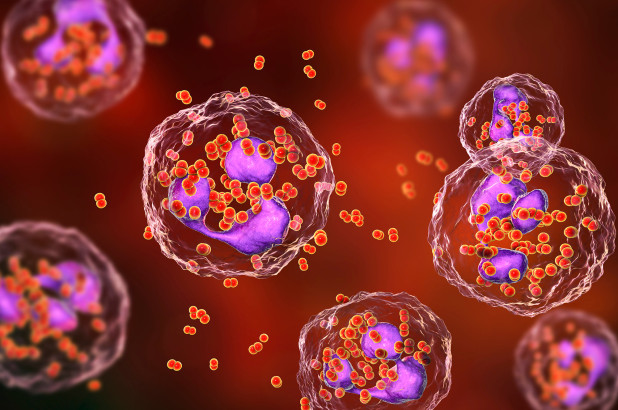Source: Thailand Medical News Nov 03, 2019 5 years, 5 months, 3 weeks, 2 days, 20 hours, 15 minutes ago
GlaxoSmithKline (
GSK) has initiated a Phase III trial of first-in-class antibiotic
gepotidacin in patients with urogenital
gonorrhea as a result of recent, positive Phase II results.

The EAGLE-1 study compared
GSK’s novel antibiotic with the standard of care for this sexually transmitted infection which is ceftriaxone combined with azithromycin in 600 patients. The primary endpoint will be culture-confirmed bacterial eradication of
Neisseria gonorrhoea (
NG) bacteria from the urogenital site.
In another Phase II trial in GKS’s
gepotidacin clinical development programme, the antibiotic was studied in patients with uncomplicated urinary tract infections. The drug was compared to nitrofurantoin and approximately 1,200 patients was recruited for the EAGLE-2 study.
Both urogenital
gonorrhoea and urinary tract infections have been designated as antibiotic resistant threats by the US Centres for Disease Control and Prevention.
Trial results from the Phase III clinical development programme are expected to be published in 2021. GSK has been supported in its continued work against antibiotic resistance by the US Government’s Biomedical Advanced Research and Development Authority and Defence Threat Reduction Agency.
“Given the increasing rate of antibiotic drug resistance, and
gepotidacin’s unique mechanism of action, we believe this drug has the potential to transform the treatment landscape for patients with uncomplicated urinary tract infection and urogenital
gonorrhoea who currently have limited therapeutic options.” commented
GSK president of R&D and chief scientific officer Dr Hal Barron in a phone interview with
Thailand Medical News.
The first study, called EAGLE-1, tested
gepotidacin against ceftriaxone plus azithromycin in approximately 600 patients with
gonorrhea. The second trial, EAGLE-2, compared gepotidacin against nitrofurantoin in about 1,200 females with an uncomplicated UTI.Both triasl have extremely positive results.
In Phase II study of patients with urogenital
gonorrhoea, a single dose of
gepotidacin
gt; was at least 95% effective in eradicating NG bacteria in adults. Similar results were found in another Phase II study of patients with acute bacterial skin and skin structure infections; the trial met its success criteria for efficacy and safety.
Gepotidacin is a triazaacenaphthylene topoisomerase inhibitor, developed by GSK in 2007. It has a dual targeting mechanism of two enzymes: DNA gyrase and topoisomerase type II, which are responsible for bacterial replication. It is believed that this mechanism of action helps gepotidacin to effectively target antibiotic resistant pathogens.
GSK is one of the few big pharmas still researching vaccines and antibiotics, both therapeutic markets that have taken a backseat to other drug development areas like oncology and rare disease
